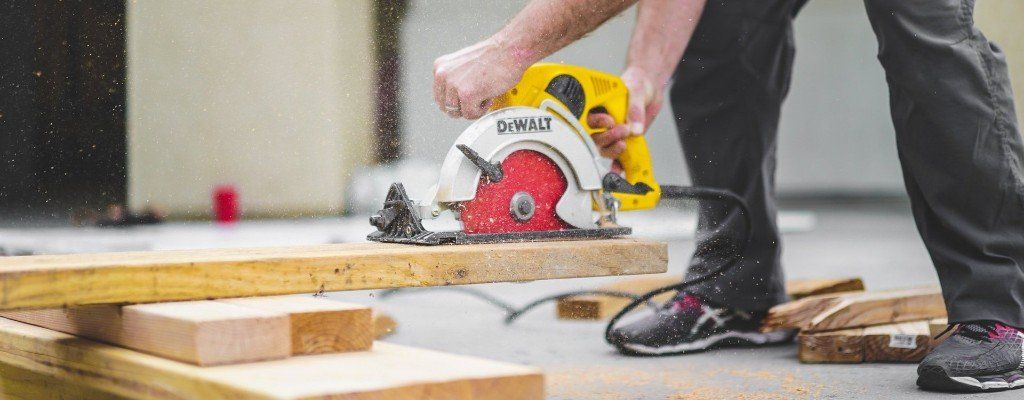
Getting Paid
Payment Bond Claims on Private Arizona Projects
These instructions are designed to be used with the Private Payment Bond Worksheet, which you may wish to attach to each of your private construction job files.
As your work progresses, track the steps completed and calendar the upcoming deadlines to preserve your right to recover against the payment bond.
A surety bond is a specialized, three-party contract by which the surety company guarantees the owner that the contractor, who is the principal on the bond, will perform a particular contract. Surety bonds that protect the owner against the risk that the general contractor may default and fail to perform its obligations are an integral part of the construction process.
A performance bond protects the owner from financial loss in case the contractor fails to perform its construction contract. A payment bond, or labor and material bond, guarantees the owner that the contractor will pay subcontractors, suppliers, and workers. The subcontractors, suppliers and workers are beneficiaries of the payment bond. In Arizona a private project owner can prevent lien claimants from recording liens on his property by recording the general contract and a payment bond.
In Arizona a private project owner can prevent lien claimants from recording liens on his property by recording the general contract and a payment bond. Once those documents are recorded, only persons who contract directly with the owner have lien rights (A.R.S. § 33-1003). Therefore it is very important to find out whether there is a payment bond in effect on your project and meet its requirements for payment.
There are no statutes governing the terms of private payment bonds in Arizona. Private owners and general contractors are free to privately negotiate terms tailored to their particular requirements. Private bonds can contain extra “hurdles” for a claimant that cannot be anticipated without reading the bond. Therefore, if there is a payment bond on your project, the earlier you get a copy, the better prepared you are.
The general contractor is not required to advertise the fact that the project is bonded. Subcontractors and suppliers may not even know they have rights under a payment bond. This has been called “the most expensive question that was never asked.” Do not wait until payment problems arise. Find out early whether the job is bonded and get a copy of the bond.
Step-by-Step Procedures
Until you ascertain whether a payment bond has been posted and obtain a copy of it for your lawyer’s review, we recommend that you do the following:
Step 1
Immediately upon contracting, serve a Preliminary 20-Day Notice. Request the information necessary for the Notice, prepare it, and serve it in the same manner as described in the discussion of mechanics' liens, by either first-class mail with a certificate of mailing, registered mail, or certified mail, postage prepaid, and addressed to the business or residence of the party served. Serve (a) the owner or reputed owner, (b) the original contractor or reputed contractor, (c) the construction lender or reputed construction lender, and (d) the person with whom you contracted. If you know the payment bond surety, serve the surety as well.
See Form A, "Written Request to Owner for Information for Preliminary 20-Day Notice," available in PDF and edit-ready Word formats
See Form B (Part 1), "Preliminary 20-Day Lien Notice" (PDF • Word)
Step 2
Prepare an Affidavit of Service. Prepare your Affidavit of Service and keep it in a safe place with a copy of the Notice and the U. S. Postal Service certificate of mailing. If the materials and services you provide exceed the Preliminary 20-Day Notice estimate by more than 20%, serve a supplemental Preliminary 20-Day Notice.
See Form C, "Affidavit of Service" (PDF • Word)
Step 3
Record the last date when you provide labor or materials to the project. This date is critical because it determines the deadlines for serving your 90-day post-completion notice and for filing a lawsuit on the bond. Work done solely to effect repairs, make corrections, or complete a final inspection usually do not extend the deadline. Make certain that you have completely performed your contract and that you have documented proof of your last day (e.g., using time sheets or photos).
Step 4
Serve your post-completion notice upon completion of your work. Serve the post-completion notice to the same people and in the same manner as provided for Preliminary 20-Day Notices (see step 1 above). A private payment bond may have a shorter claim deadline than the 90 days provided for public works, so serve this notice right away.
See Form D, "Post-Completion Notice to Surety on Private Payment Bond" (PDF • Word)
Step 5
File an action on the payment bond within one year. The time for filing a lawsuit on a private payment bond will be governed by the terms of the bond. Private payment bonds commonly provide that the time for filing an action expires one year after the last day on which you perform work under your contract. If you do not receive timely payment, do not delay in seeking advice of legal counsel.
